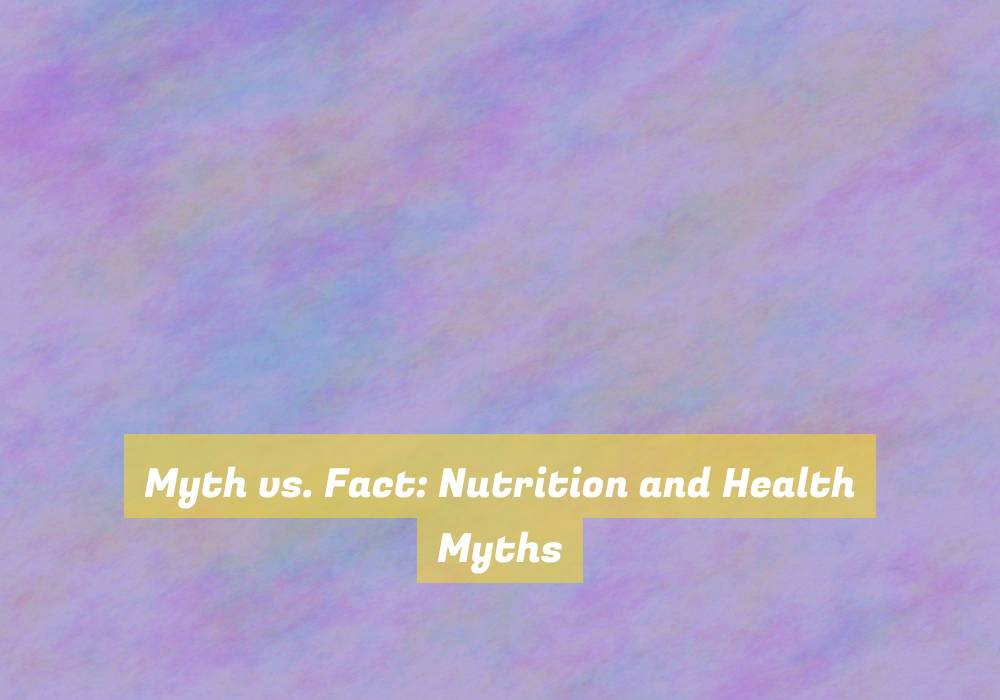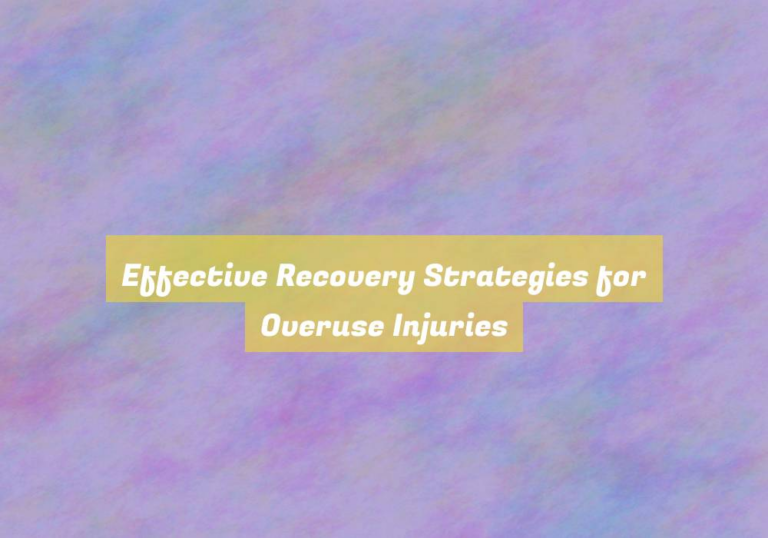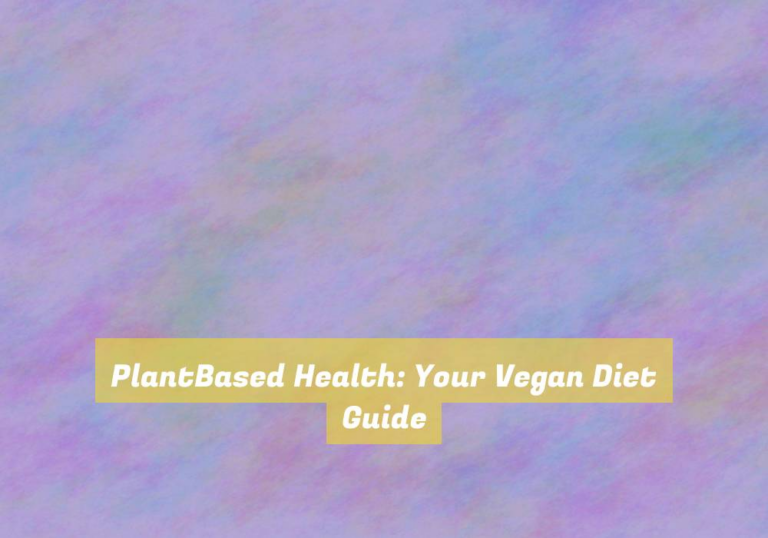Myth vs. Fact: Nutrition and Health Myths
YouGÇÖve probably heard the saying, GÇÿYou are what you eat,GÇÖ but when it comes to nutrition and health, separating fact from fiction can be a daunting task. With so much information available, itGÇÖs easy to get caught up in the myths surrounding food and its impact on our well-being.
From the truth about superfoods to understanding good vs.-ábad fats, thereGÇÖs a lot to uncover when it comes to what we put into our bodies. But how do you know whatGÇÖs true and whatGÇÖs just a myth?
Common Misconceptions About Carbohydrates
There are many common misconceptions about carbohydrates that can lead to confusion about their role in a healthy diet. One prevalent myth is that all carbs are bad for you. In reality, carbohydrates are a crucial source of energy for your body. The key is to focus on consuming complex carbohydrates, such as whole grains, fruits, and vegetables, while moderating the intake of simple carbohydrates like sugary snacks and refined grains.
Another misconception is that cutting out carbs is the best way to lose weight. While reducing refined and processed carbohydrates can aid in weight loss, completely eliminating carbs from your diet is unnecessary and potentially harmful. Instead, opt for a balanced approach that includes a variety of nutrient-dense foods, including healthy carbohydrates in appropriate portions.
Furthermore, many people believe that all carbohydrate-rich foods cause a rapid spike in blood sugar levels. While some carbohydrates can cause a quick rise in blood sugar, choosing high-fiber, low-glycemic index carbohydrates can help regulate blood sugar levels and provide sustained energy throughout the day.
The Truth About Superfoods
Uncover the truth about superfoods and their actual impact on your health and diet. Superfoods have gained popularity for their supposed extraordinary health benefits, but itGÇÖs essential to understand that they arenGÇÖt magical cure-alls. While many superfoods are indeed packed with essential nutrients, itGÇÖs important to remember that no single food can provide all the nutrients your body needs. Incorporating a variety of nutrient-dense foods into your diet is key to maintaining overall health.
Some common superfoods include berries, leafy greens, nuts, and seeds. These foods are rich in antioxidants, vitamins, and minerals, which can contribute to your well-being. However, itGÇÖs crucial to consume them as part of a balanced diet rather than relying solely on these specific items.
Additionally, superfoods can sometimes be expensive and difficult to find, leading to the misconception that theyGÇÖre necessary for good health.
Debunking the Protein Myths
Have you ever wondered if youGÇÖre consuming enough protein for your health and fitness goals? There are numerous myths surrounding protein intake that can lead to confusion. LetGÇÖs debunk some of these myths to help you make informed decisions about your nutrition.
Myth: You need large amounts of protein to build muscle. Fact: While protein is essential for muscle growth and repair, consuming excessive amounts wonGÇÖt necessarily lead to more muscle. Consuming a moderate amount of protein spread throughout the day is more effective.
Myth: Plant-based proteins are incomplete and inferior to animal proteins. Fact: Many plant-based proteins such as quinoa, tofu, and lentils are complete proteins, containing all essential amino acids. Additionally, they offer various health benefits due to their fiber and phytonutrient content.
Myth: Protein powders are necessary for reaching your protein intake goals. Fact: While protein powders can be convenient, they arenGÇÖt essential. Whole food sources like meat, fish, dairy, legumes, and nuts can provide adequate protein.
Myth: Consuming high amounts of protein is harmless. Fact: Excessive protein intake can strain the kidneys and lead to dehydration. ItGÇÖs important to consume protein in moderation and maintain a balanced diet.
Understanding Good Vs. Bad Fats
Understanding the difference between good and bad fats is essential for making informed dietary choices and maintaining overall health.
Good fats, such as monounsaturated and polyunsaturated fats, can have positive effects on your health when consumed in moderation. These fats can help lower the risk of heart disease and reduce bad cholesterol levels. You can find good fats in foods like avocados, nuts, seeds, and fatty fish.
On the other hand, bad fats, like trans fats and saturated fats, can increase the risk of heart disease and raise bad cholesterol levels. ItGÇÖs important to limit your intake of foods high in these fats, such as fried foods, processed snacks, and fatty cuts of meat.
Reading nutrition labels can help you identify the types of fats in the foods you consume. By choosing foods high in good fats and low in bad fats, you can support your overall health and well-being. Remember, moderation and balance are key when it comes to incorporating fats into your diet.
Conclusion
So, next time you hear a nutrition or health myth, remember to fact-check before believing it.
Carbohydrates arenGÇÖt all bad, superfoods arenGÇÖt magical, protein is important but not in excessive amounts, and there are good fats that benefit your health.
By understanding the truth behind these myths, you can make better choices for your overall well-being.





